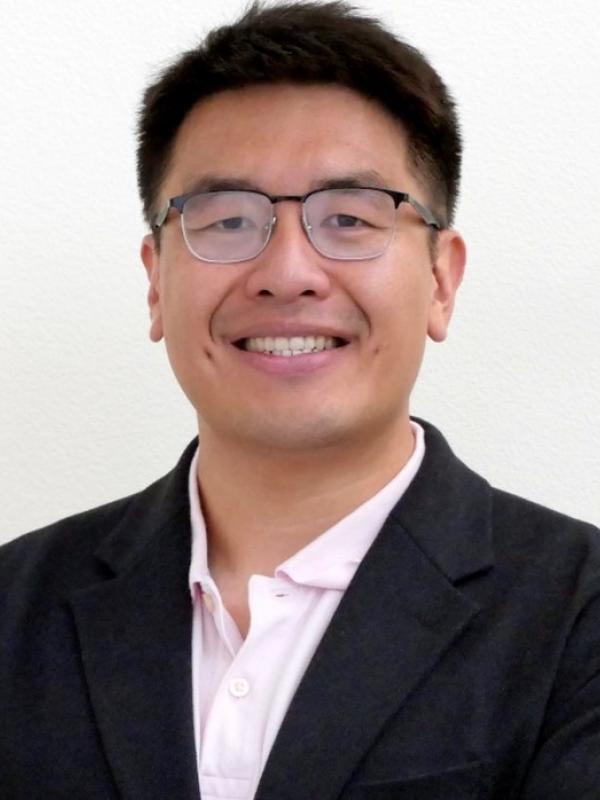Areas of Expertise
- Chemistry Education
Growing up in Calabasas, California, Meng-Yang Matthew Wu received a BS in Biochemistry at the University of California Los Angeles in 2013. By 2016, he obtained his MS in Chemistry from the University of California San Diego. There, he developed a passion for teaching chemistry while working as a Senior Teaching Assistant for Dr. Sandrine Berniolles. Simultaneously, he began his induction into the chemistry education research community, collaborating with Dr. Thomas Bussey to investigate the features of a voltaic cell representation to which students would attend using the Three Phase Single Interview Technique and an eye tracker. Eventually, he obtained his PhD from Purdue University in 2020. He had worked with Dr. Minjung Ryu to understand pre-service teacher identity and graduate students’ communities of practice. Specifically, he developed and established a conceptual framework that leverages good game design principles to understand the affordances of productive failure within the instructional laboratory. As a postdoctoral researcher at Miami University, he worked with Dr. Ellen Yezierski and Dr. Roy Taskeer on the VisChem Institute, an intensive summer professional development program for in-service high school chemistry teachers. Together, they have contributed new insights on reimagining on chemistry lesson planning, pedagogical conceptual change, teacher-teacher feedback, ontologies of teacher artifacts, and the historicity of chemistry pedagogy. In 2022, Dr. Wu was also selected to be a CADRE Fellow. Currently, Dr. Wu is interested in understanding chemistry graduate teaching assistants and how enacted pedagogy can fulfill diversity, equity, inclusion, and justice initiatives. He endeavors to re-purpose the utility of chemistry knowledge for more socio-scientific sensemaking and world readiness so that both educators and learners can better navigate the complexities of today’s society.
Research Overview
The Boyer 2030 Commission has stated that higher education requires both excellence and equity for developing learners’ world readiness. The report states, “excellence without equity (privilege reproducing privilege) is not true excellence, and equity (mere access) without excellence is unfulfilled promise” (p. 3). To fulfill this initiative, the Wu Research Group endeavors to investigate, theorize, and develop teaching practices that maximize both chemistry conceptual understanding and equity. We are interested in identifying the social capital that both educators and learners bring to the classroom context. We seek to understand how to facilitate epistemologies that involve socio-scientific sensemaking so that chemistry knowledge can be connected to the multilayered fabric of everyday life. We also aim to adjust and reform both curricular and professional design principles so that students, graduate teaching assistants, and instructional chemistry stakeholders can all benefit. Our research effort will primarily be qualitative, leveraging video research principles and ethnography. We will incorporate more cutting-edge educational philosophies and ascertain ways of importing them into chemistry education research to improve the novelty and relevance of our work.
Publications
Wu, M. Y. M., & Yezierski, E. J. (2023). Investigating the mangle of teaching oxidation-reduction with the VisChem approach: problematizing symbolic traditions that undermine chemistry concept development. Chemistry Education Research and Practice, 24(3), 807-827, DOI: 10.1039/D2RP00321J.
Wu, M. Y. M., & Yezierski, E. J. (2023). Secondary Chemistry Teacher Learning: Precursors for and Mechanisms of Pedagogical Conceptual Change. Chemistry Education Research and Practice, 24(1), 245-262. DOI: 10.1039/D2RP00160H.
Wu, M. Y. M., & Yezierski, E. J. (2022). Exploring Adaptations of the VisChem Approach: Advancements and Anchors toward Particle-Level Explanations. Journal of Chemical Education, 99(3), 1313-1325. DOI: 10.1021/acs.jchemed.1c01275
Wu, M. Y. M., & Yezierski, E. J. (2022). Pedagogical chemistry sensemaking: A novel conceptual framework to facilitate pedagogical sensemaking in model-based lesson planning. Chemistry Education Research and Practice, 23(2), 287-299. DOI: 10.1039/D1RP00282A
Wu, M. Y. M., Magnone, K.M., Tasker, R., & Yezierski, E. J. (2021). Remote Chemistry Teacher Professional Development Delivery: Enduring Lessons for Programmatic Redesign. Journal of Chemical Education, 98(8), 2518-2526. DOI: 10.1021/acs.jchemed.1c00181
Ryu, M., Nardo, J. E., & Wu, M. Y. M. (2018). An examination of preservice elementary teachers’ representations about chemistry in an intertextuality- and modeling-based course. Chemistry Education Research and Practice, 19, 681-693. DOI: 10.1039/C7RP00150A

